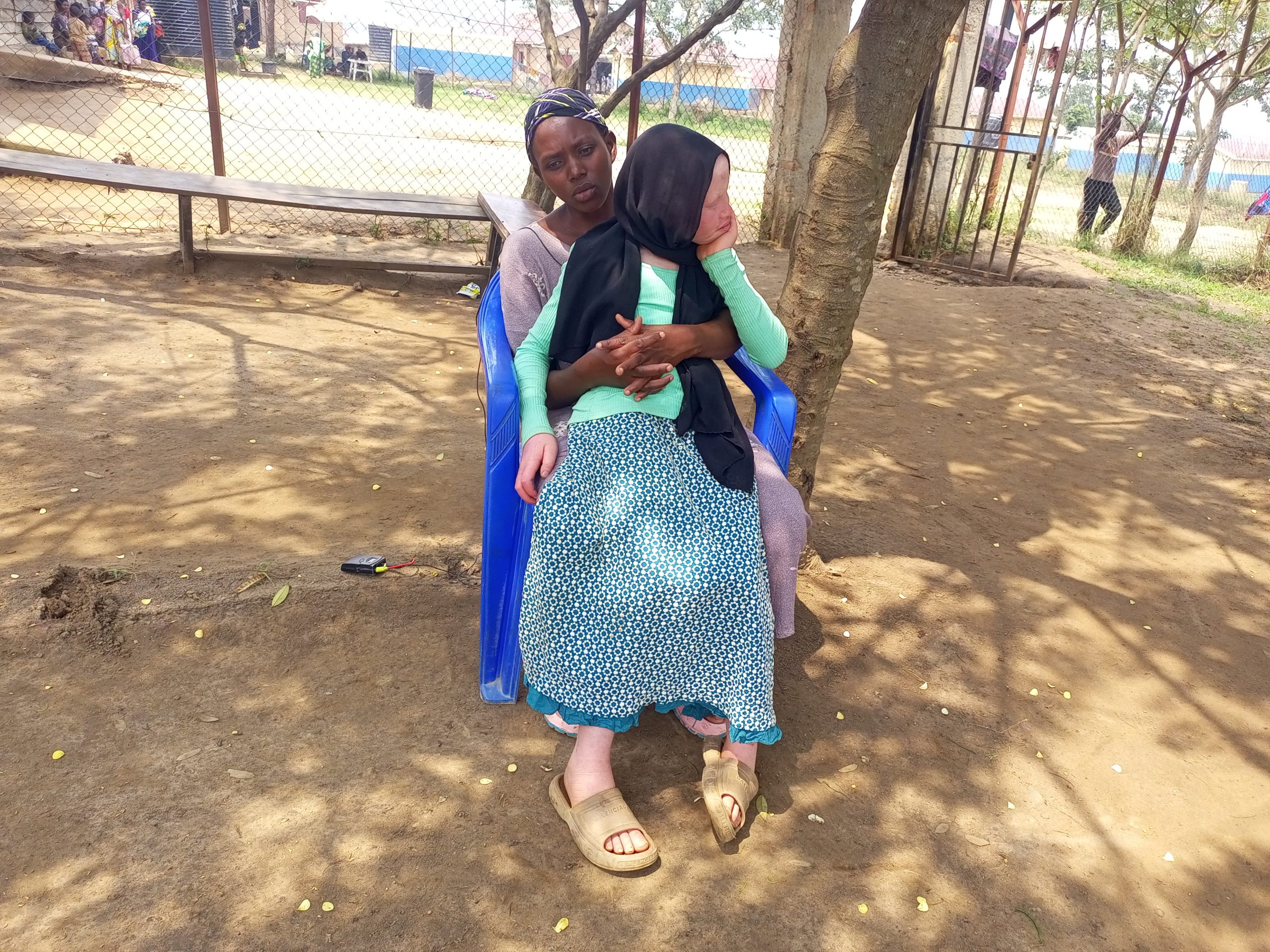Refugee Mother Speaks Out on Discrimination Against Her Albino Child in Nakivale Settlement.
Nuwasaba Jannati, a resident of Isungezi village in Nakivale Refugee Settlement, Isingiro District, is a refugee and a mother of five children. Her second-born, a seven-year-old girl, is an albino.
During a recent outreach organized by Shared Action Africa, the organization focused on sexual and reproductive health services for albino youths. As part of the initiative, Shared Action Africa distributed free sanitary pads, provided hygiene training, and offered support to address the social and health challenges faced by albino children in refugee communities.
Jannati described the difficulties she has faced raising her children under such conditions. She explained that children with albinism are often stigmatized and socially excluded, as many community members wrongly consider them a curse and refuse to associate with them.
“My children are mistreated so much in this community. They are isolated and not considered like other kids. Since this camp hosts people from different tribes, cultures, and beliefs from various countries, my child is taken as a curse. They don’t want to share anything with her and treat her as a taboo. When she goes to fetch water from the borehole, she is always beaten by other children and even adults. Now she fears going there. She is always living in fear,” Jannati said.
She further explained that environmental conditions pose additional challenges for her daughter.
“When it is sunny or too hot, she develops skin diseases. The sun burns her skin, leaving it damaged. I always have to buy Vaseline for her, but it is very expensive and at times I cannot afford it. In the community, other children isolate her and refuse to play with her. This makes her feel lonely and inferior. They laugh at her because she does not look like them and does not fit in. My daughter is now depressed, fearful, and at times refuses to go outside,” she added.
Despite these challenges, Jannati expressed gratitude to Shared Action Africa for its efforts to create awareness and promote inclusion.
“I am grateful that Shared Action Africa has offered community training to sensitize the public about the lives of people with albinism. They taught that albinos are also human beings. I have witnessed positive transformation among community members who admitted they were wrong and promised to change and start treating albinos better. Shared Action Africa also gave our children free sanitary pads, since we could not afford them. They trained us in hygiene and taught us how to associate with the locals. We now feel like we have regained our freedom. I am hopeful there will be no more isolation of my daughter, Mutese, in this community,” Jannati concluded.
Docus said.

